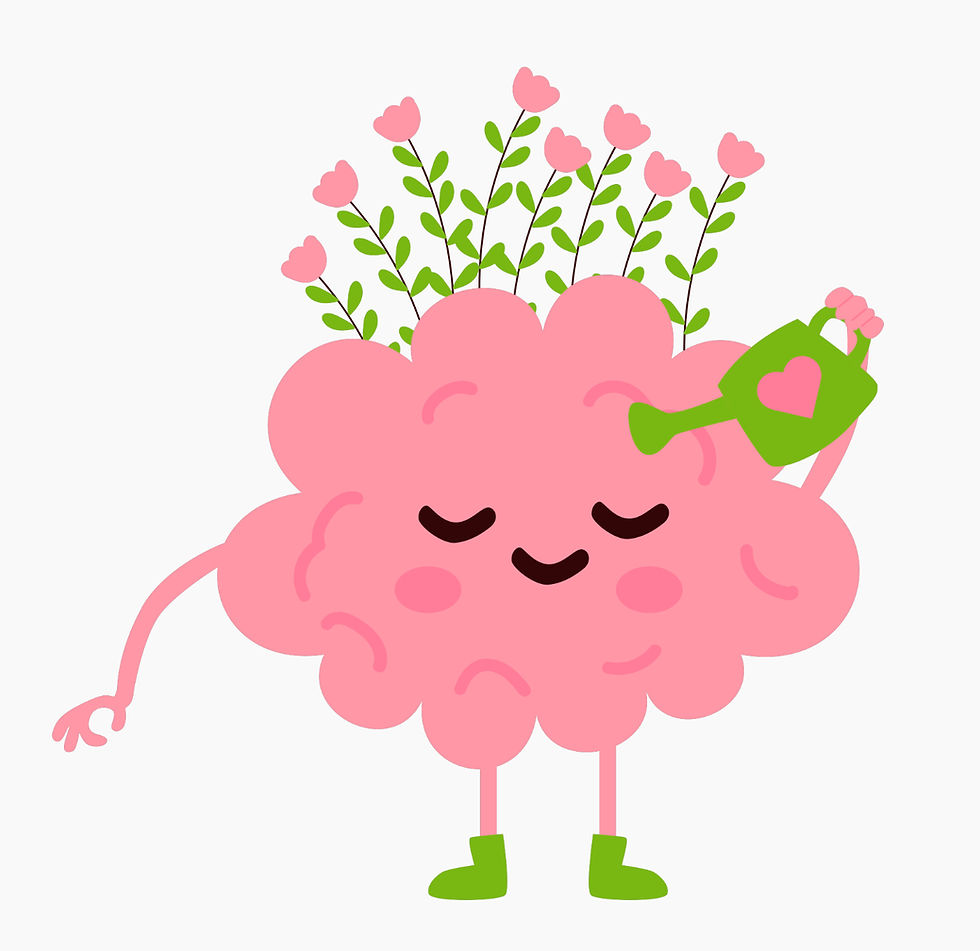How can Acupuncture help with ADHD? A Holistic Perspective
- Dr Sunila Prasad

- Jul 3, 2025
- 4 min read
Updated: Jul 10, 2025
Attention Deficit Hyperactivity Disorder (ADHD) is a neurodevelopmental condition that affects both children and adults. Characterised by symptoms such as inattention, impulsivity, hyperactivity, and difficulties with emotional regulation, ADHD can significantly impact day-to-day functioning, academic performance, and family dynamics.
While conventional treatments such as behavioural therapy and medication (e.g. stimulants like methylphenidate) remain the gold standard, many families and individuals are exploring complementary approaches to help manage symptoms more holistically. One of these is acupuncture.
At SP Acupuncture in Croydon and South Croydon, I often work with neurodivergent patients- both adults and children- who benefit from a calm, supportive, and gentle environment.
So how can Chinese Medicine treatments with acupuncture support someone with ADHD?

Understanding ADHD: A Western Medicine Perspective
From a Western viewpoint, ADHD is thought to involve structural and functional differences in the brain, particularly in regions responsible for attention, executive function, and emotional regulation. Neurotransmitters such as dopamine and noradrenaline also play key roles in how symptoms manifest.
Medication can help regulate these chemical messengers, but not everyone tolerates them well. Common side effects include brain fog, fatigue, sleep difficulties, appetite suppression, and emotional ups and downs. This is where complementary therapies like acupuncture can offer support.
Acupuncture and the Nervous System
One of the key ways acupuncture may benefit those with ADHD is through its influence on the autonomic nervous system.
Acupuncture has been shown to help regulate the sympathetic ("fight or flight") and parasympathetic ("rest and digest") branches of the nervous system, promoting a greater sense of calm, focus, and emotional stability. This can be particularly valuable in ADHD, where dysregulation of stress responses is common.
Research also suggests that acupuncture can support:
Reducing cortisol levels, supporting better stress resilience (1)
Enhancing blood flow to the prefrontal cortex, a brain region involved in focus and decision-making (2)
Improving sleep quality, which is often disrupted in ADHD (3,4)
The Chinese Medicine View on ADHD
(N.B: the organs mentioned are interpreted through their TCM energetic value and have no relation to the western medical system).
In Traditional Chinese Medicine (TCM), ADHD is not defined as a single diagnosis. Instead, practitioners assess each child or adult based on their unique pattern of symptoms, constitution, and energetic imbalances.
Common TCM patterns associated with ADHD include but are not limited to:
Liver Wind or Liver Yang Rising: Often linked with impulsivity, restlessness, and outbursts
Heart and Spleen Qi Deficiency: Presents as forgetfulness, poor focus, and fatigue
Kidney Essence Deficiency: May be associated with developmental delays, low concentration, and agitation
Acupuncture is used to restore balance across these organ systems, regulate Shen (spirit/mind), and harmonise Qi (vital energy). Techniques might include:
Calming the Shen (mind)
Nourishing the Heart and Spleen
Anchoring the Yang energy
Supporting Kidney essence
What Does a Treatment Plan Look Like?
Each treatment plan is personalised. For younger children, needle-free methods such as Shonishin (Japanese paediatric acupuncture), acupressure, cupping, moxibustion, and auricular acupuncture (ear seeds) are often used.
In older children, teens, and adults, gentle acupuncture with fine needles can be safely introduced. Treatments typically focus on calming the nervous system, managing stress, improving sleep, and enhancing emotional regulation.
Frequency depends on the individual, but in most cases, a course of regular treatments (e.g. weekly for 6-8 sessions) is recommended to see meaningful results.
Support Beyond the Needle
At SP Acupuncture, I also work closely with my patients to create supportive routines and practices that align with the either yours or your child’s unique needs. This may include:
Dietary advice to support focus and long term management of symptoms
Breathing techniques and grounding exercises
Collaborating with other professionals where appropriate for a multi-disciplinary approach
Is It Safe?
When performed by a qualified and licensed practitioner, acupuncture is a safe and gentle therapy for children and adults alike. I take special care to make each session relaxed, allowing patients of any age to feel empowered and at ease.
Curious to Learn More?
If you or your child has been diagnosed with ADHD or you’re exploring holistic options to support focus, emotional regulation, or behaviour I’d love to hear from you.
Book a free discovery call to find out how acupuncture can fit into your family’s care plan.
References:
1) Zheng, J. Y., Zhu, J., Wang, Y., & Tian, Z. Z. (2024). Effects of acupuncture on hypothalamic-pituitary-adrenal axis: Current status and future perspectives. Journal of Integrative Medicine.
2) Sakatani, K., Kitagawa, T., Aoyama, N., & Sasaki, M. (2010). Effects of acupuncture on autonomic nervous function and prefrontal cortex activity. In Oxygen Transport to Tissue XXXI(pp. 455-460). Springer US.
3) Shergis, J. L., Ni, X., Jackson, M. L., Zhang, A. L., Guo, X., Li, Y., ... & Xue, C. C. (2016). A systematic review of acupuncture for sleep quality in people with insomnia. Complementary therapies in medicine, 26, 11-20.
4) Chen, Y. C., Wu, L. K., Lee, M. S., & Kung, Y. L. (2021). The efficacy of acupuncture treatment for attention deficit hyperactivity disorder: a systematic review and meta-analysis. Complementary Medicine Research, 28(4), 357-367.




Comments